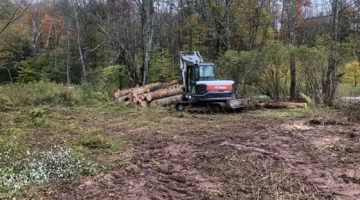Documentary filmmaker Arnon Goldfinger claims he was in between projects when his
grandmother died. The storyteller in him told him to take his camera to his grandmother’s
Tel Aviv apartment (or flat) when the family converged upon it to sort through a lifetime
of clothes, books, photographs, and papers. What resulted, if you believe Goldfinger and
in a benevolent God who watches over documentary filmmakers, is extraordinary.
In the spanking new tradition of real time documentaries replete with script-quality
revelations (a la Catfish), Goldfinger’s The Flat delivers a bone-chilling shock to the
audience meant to be witnessed as it occurred; as Goldfinger’s camera itself dug beneath
the surface and uncovered dark family secrets.
What certainly does not help sell this notion is that Goldfinger has the cadence and
demeanor of the anesthetized. He is perpetually in a state of reflective wonder. His eyes
never narrow. His brow never knits. His blood never boils.
I asked the filmmaker about this.
“What you see is not always what a character feels,” Goldfinger told me. “You see only
the surface.
“I was raised to be this way,” the filmmaker said. “This is the German way. Those are my
authentic reactions.”
At that point it struck me how ironic my suspicions were. The film itself is about
Goldfinger’s German past. It is a film very much about German Jews and their ingrained
regimented emotions, as well as patriotism and loyalty to their beloved Deutschland.
While all German Jews were devastated by the betrayal of their neighbors, as incredible
as it sounds, not all could completely disassociate their murderers from their friends.
Beyond The Flat revealing to audiences this disturbing phenomenon, the film also asks a
very basic question that applies to all humanity: How much do we really want or need to
know about where we come from? Do our ancestors define us?
“The mission is not only about the facts or about denying the facts,” Goldfinger
said. “It’s not just about knowing your family history, but to feel a connection to it. When
we don’t speak about something, we don’t realize it. We need to know our identity.
A tree cannot grow without roots. Sometimes, to know your identity, you need to put
yourself on the line.”
Without ruining the bombshell at the heart of The Flat, no one can deny that Goldfinger
put himself and surely his mother on the line in the name of uncovering a family identity.
The follow up question of course is whether the burden of a terrible identity is worth
carrying.
“I believe it is important to know it even if it could be unpleasant what you find,”
Golding responded. “My mother was opposed to digging into the past. I was the opposite.
The more she pushed me away, the more I pushed in the other direction. I can understand
why she thinks that way, but in my point of view, my mother loses a lot of what is
essential.”
One who watches The Flat will certainly come away with an opinion on this subject
one way or the other. Whether they come away feeling they saw an authentic, riveting
documentary is a matter of faith.








